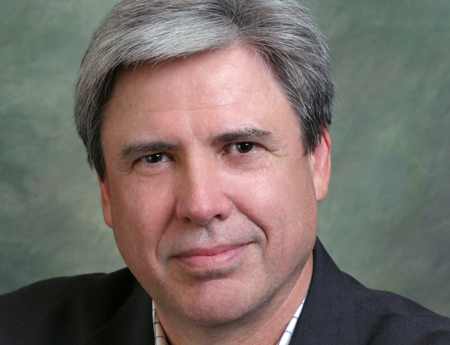FCC Sets Sights on Indecency

The smarter way to stay on top of broadcasting and cable industry. Sign up below
You are now subscribed
Your newsletter sign-up was successful
The FCC’s record proposed indecency fine against WDBJ (Roanoke, Va.), could be the first shot in the next battle over the commission’s ability to regulate broadcast content in a video distribution universe otherwise free of such constraints (see Game of Thrones, House of Cards, etc.).
This comes according to a veteran First Amendment attorney who has made a living, and a name, out of defending broadcast content from federal regulators.
Any such challenge, if it came, would be years in the making. For reference, one need only recall the challenge to the Super Bowl halftime reveal, which left the FCC’s ability to regulate indecent content intact, after its process got the proverbial trip to the woodshed.
In the shorter term, John Crigler, a communications attorney with New York-based Garvey Schubert Barer, sees the decision as the FCC’s way of signaling that the general pass news programming has gotten in the indecency realm is now being revoked.
“The order speaks for itself,” said FCC spokesman Neil Grace, without elaboration. If so, it speaks loudly. The order represented the maximum fine possible and the biggest ever levied against a single station for a single incident
That was good news for groups such as Morality in Media and the Parents Television Council, which have been pushing the FCC to renew its content crackdown.
After the Supreme Court found the FCC’s prior enforcement regime unconstitutionally arbitrary and capricious, then-chairman Julius Genachowski signaled that the FCC would only pursue serious violations. But footage on WDBJ in a report about the onetime adult-film career of a local rescue squad worker (specifically, a less-than-3-second clip of a sexually graphic image taken from a Web site promoting her films) was not held to that standard since it occurred in 2012, before the FCC’s policy was updated.
The smarter way to stay on top of broadcasting and cable industry. Sign up below
Crigler, whose station owner clients include the Pacifica Foundation, says two things bother him about the decision—the size of the fine and that it involved a newscast. “I could see the commission backing even further away from giving any type of programming a pass,” he says, referring to the FCC’s history of not fining language or nudity in news programming.
Crigler says he thinks the FCC may have picked this case as one that could preserve its indecency enforcement regime if it reaches the Supreme Court on speech grounds.
“The FCC can only avoid facing the First Amendment question so many times, and they have been looking for a case they think they can stand behind in pitting indecency regulation against the First Amendment,” he says.
He points out that he has not seen anyone arguing that a sex act on the 6 p.m. news does not qualify as indecency under the FCC’s enforcement regime.
And whether or not the FCC pushes the issue, or broadcasters push back, Crigler thinks the commission is sending a signal: “I think the commission probably chose this so it could stake out the position that ‘we don’t care what you call the program, we’re just going to look at it to see if it is decent or not. No free passes or categorical exemptions.’”
The FCC’s Grace refused to comment further on the matter.
FRANKEN VET JOINS ACTIVIST’S ANTI COMCAST/TWC TEAM
A veteran of the anti-consolidation pushback from Capitol Hill has joined Demand Progress, with an eye toward strategizing opposition to the Comcast/Time Warner Cable merger.
Sara Cederberg has been tapped as the organization’s new campaign manager.
Cederberg is the former digital director for the successful re-election campaign last fall of Sen. Al Franken (D-Minn.), one of the deal’s—and consolidation in general’s—biggest Hill critics.
“In her new role as campaign manager, Sara will help Demand Progress set strategy and mobilize its members for upcoming campaigns, including blocking the Comcast takeover of Time [Warner Cable],” Demand Progress executive director David Segal said last week in announcing the hire.
The Comcast/TWC deal, which had a planned breakup date of February, now has a walk-away deadline of August if the deal is not approved in Washington by then. Comcast, which had been talking about getting a decision out of D.C. early this year, has since reassessed that to a midyear decision after the FCC paused its informal shot clock awaiting a decision out of a D.C. federal appeals court on third party access to contracts in that deal and the AT&T/DirecTV merger proposal.
Contributing editor John Eggerton has been an editor and/or writer on media regulation, legislation and policy for over four decades, including covering the FCC, FTC, Congress, the major media trade associations, and the federal courts. In addition to Multichannel News and Broadcasting + Cable, his work has appeared in Radio World, TV Technology, TV Fax, This Week in Consumer Electronics, Variety and the Encyclopedia Britannica.

